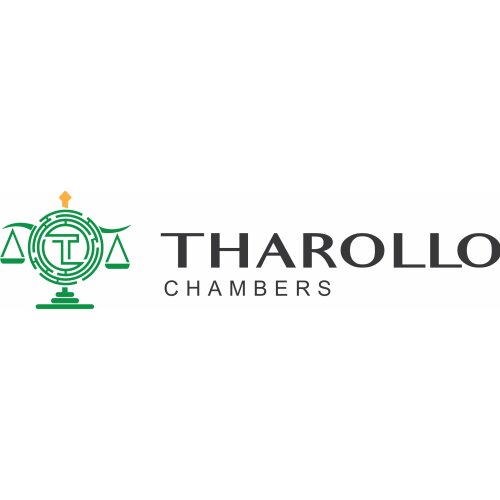Best Hiring & Firing Lawyers in Lesotho
Share your needs with us, get contacted by law firms.
Free. Takes 2 min.
Or refine your search by selecting a city:
List of the best lawyers in Lesotho
About Hiring & Firing Law in Lesotho
Lesotho's employment laws, primarily governed by the Labour Code Order 1992, have been designed to protect both the employer and the employee in the hiring and firing process. These laws encompass various regulations that ensure fair treatment in hiring practices, just reasons for termination, and adherence to due process. Employers are expected to provide clear contracts and follow specific procedures for dismissals, while employees have rights that protect against unfair labor practices.
Why You May Need a Lawyer
There are several situations where legal assistance may be crucial in the hiring and firing process in Lesotho. Common issues include navigating complex employment contracts, handling allegations of unfair dismissal, ensuring compliance with labor laws, and resolving disputes between employers and employees. Lawyers can provide guidance on lawful grounds for termination, mediation, and represent clients in labor courts to resolve disputes effectively.
Local Laws Overview
Here are some key aspects of local laws in Lesotho relevant to hiring and firing:
- Contracts: The Labour Code mandates that employment contracts should clarify the terms of employment, duration, salary, and grounds for termination.
- Termination: The law outlines acceptable reasons for termination, such as misconduct, incapacity, operational requirements, or mutual agreement.
- Notice Period: Employers are legally obliged to give notice prior to termination, the duration of which depends on the period of employment.
- Redundancy: Specific procedures must be followed if dismissals are due to redundancy, including proper consultation with affected employees.
- Unfair Dismissal: Employees may contest unfair dismissals, and employers must provide substantial evidence for termination decisions.
Frequently Asked Questions
What is the legal process for hiring employees in Lesotho?
Employers must provide a written contract outlining job roles, salary, working conditions, and termination conditions. The contract must comply with the Labour Code Order 1992.
How can an employee contest an unfair dismissal?
Employees can file a complaint with the Directorate of Dispute Prevention and Resolution (DDPR), which will facilitate mediation, arbitration, or adjudication of the issue.
What constitutes a fair reason for dismissal under Lesotho law?
Fair reasons include misconduct, incapacity, operational requirements, or by mutual agreement. The employer must substantiate these reasons clearly.
Are employers required to provide severance pay?
Yes, employees with more than one year of service are entitled to severance pay, calculated based on years of service and current wage.
What is the standard notice period for termination?
The notice period varies but typically follows a minimum of one month. It may be adjusted according to the employment contract terms or collective agreements.
How are redundancy dismissals handled?
Employers must engage in consultation with employees regarding the reasons for redundancy, selection criteria, and any alternatives to dismissal.
Can an employer change employment terms unilaterally?
No, changes to contract terms require mutual consent. Unilateral changes might lead to claims of constructive dismissal.
What protections exist against discrimination in hiring?
The Labour Code prohibits any form of discrimination based on race, gender, age, religion, or disability during the hiring process.
What recourse do employees have if employment laws are violated?
Employees can report violations to the Labour Court, and the Directorate of Dispute Prevention and Resolution can facilitate resolution through mediation or arbitration.
Are probationary periods mandatory in Lesotho?
While not mandatory, probationary periods are common and should be properly defined in the employment contract if applied.
Additional Resources
The following resources can provide further guidance on employment law in Lesotho:
- Labour Department of Lesotho
- Directorate of Dispute Prevention and Resolution (DDPR)
- Lesotho Labour Court
- Local law firms with employment law expertise
Next Steps
If you need legal assistance with hiring and firing in Lesotho, consider the following steps:
- Consult with a lawyer specializing in employment law in Lesotho to assess your situation.
- Gather all relevant paperwork, including contracts, notice letters, and any communication with employees or employers.
- Contact the Directorate of Dispute Prevention and Resolution for mediation services if a dispute arises.
- Consider attending workshops or seminars offered by the Labour Department to stay informed about your rights and obligations under the labour laws.
Lawzana helps you find the best lawyers and law firms in Lesotho through a curated and pre-screened list of qualified legal professionals. Our platform offers rankings and detailed profiles of attorneys and law firms, allowing you to compare based on practice areas, including Hiring & Firing, experience, and client feedback.
Each profile includes a description of the firm's areas of practice, client reviews, team members and partners, year of establishment, spoken languages, office locations, contact information, social media presence, and any published articles or resources. Most firms on our platform speak English and are experienced in both local and international legal matters.
Get a quote from top-rated law firms in Lesotho — quickly, securely, and without unnecessary hassle.
Disclaimer:
The information provided on this page is for general informational purposes only and does not constitute legal advice. While we strive to ensure the accuracy and relevance of the content, legal information may change over time, and interpretations of the law can vary. You should always consult with a qualified legal professional for advice specific to your situation.
We disclaim all liability for actions taken or not taken based on the content of this page. If you believe any information is incorrect or outdated, please contact us, and we will review and update it where appropriate.
Browse hiring & firing law firms by city in Lesotho
Refine your search by selecting a city.












